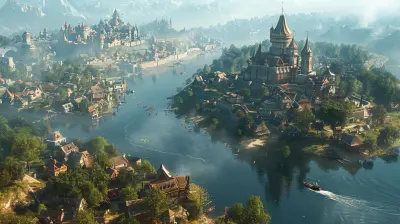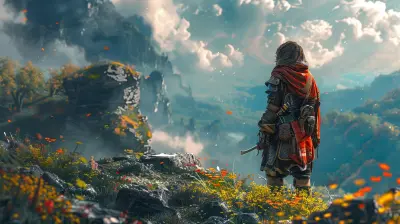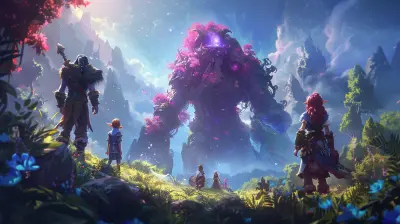How Character Customization Changed the RPG Landscape
21 November 2025
Let’s be honest — one of the coolest things about Role-Playing Games (RPGs) is creating your own character. You’re not just selecting a generic hero from a shelf; you're crafting your avatar, your digital alter ego. Whether it’s a scruffy rogue with tattoos and a mysterious past or a glowing elf in armor that screams charisma, character customization has unlocked a whole new layer of immersion in RPGs.
But how exactly did this feature evolve from a fun bonus to a core pillar of the genre? Buckle up, my fellow adventurers, because we’re about to dive deep into how character customization changed the RPG landscape forever!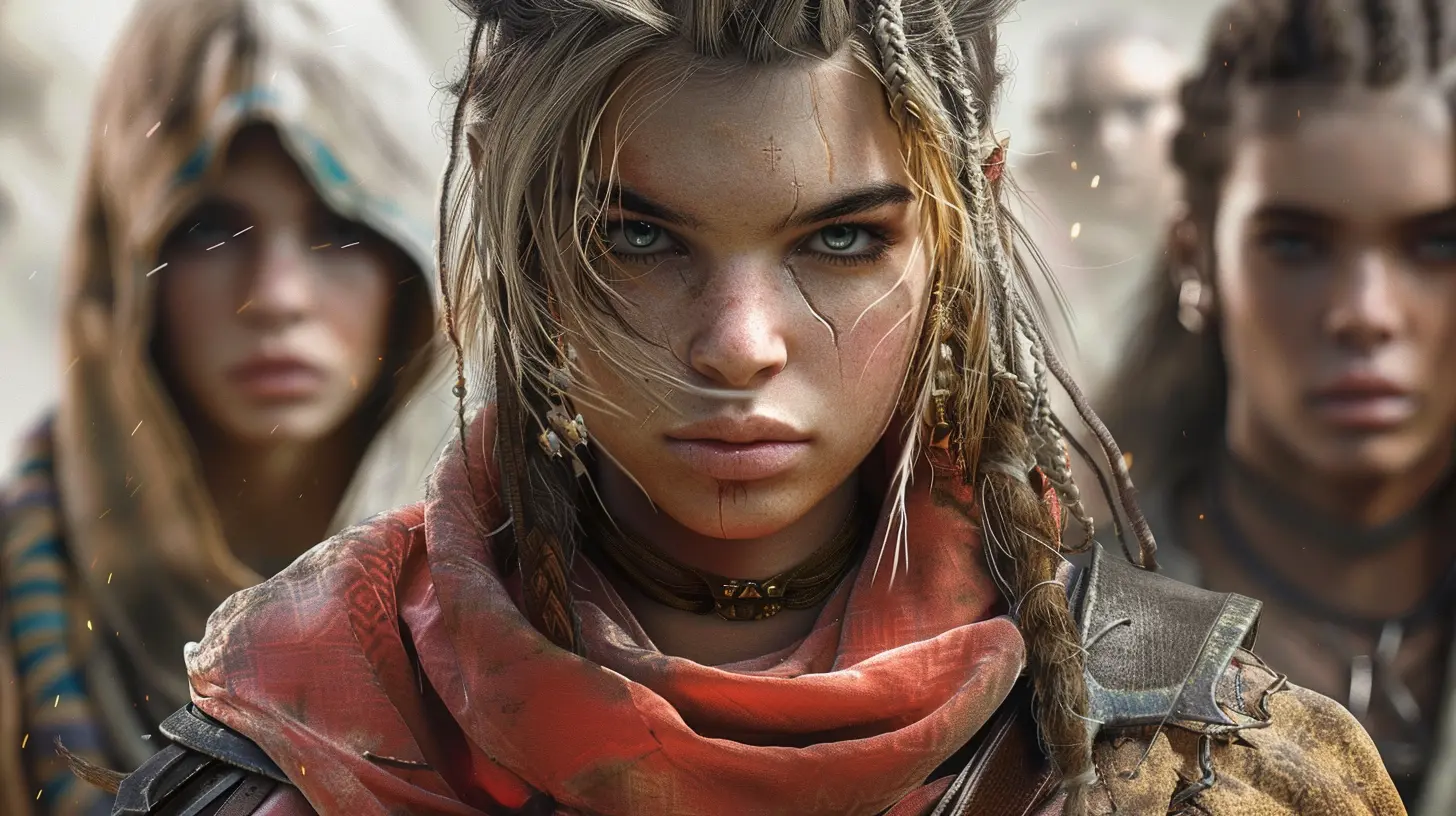
The Humble Beginnings: From Pixels to Personality
Back in the day, RPGs were pretty rigid. Think 8-bit sprites with zero facial features, and your "customization" options boiled down to selecting a class (warrior, mage, or thief) and maybe choosing your name — if you were lucky. But even with limited tools, players projected themselves into those tiny heroes.Then came games like Ultima and Baldur’s Gate, where character creation got a tiny bit more layered. Stats, alignments, and races entered the picture. While it wasn’t visually flashy yet, it gave players a sense of ownership.
Fast forward a bit, and boom — sliders, presets, hair styles, tattoos, the whole shebang. Suddenly, your character wasn’t just a name and a number. They had a face, a voice, a look that was yours and yours alone.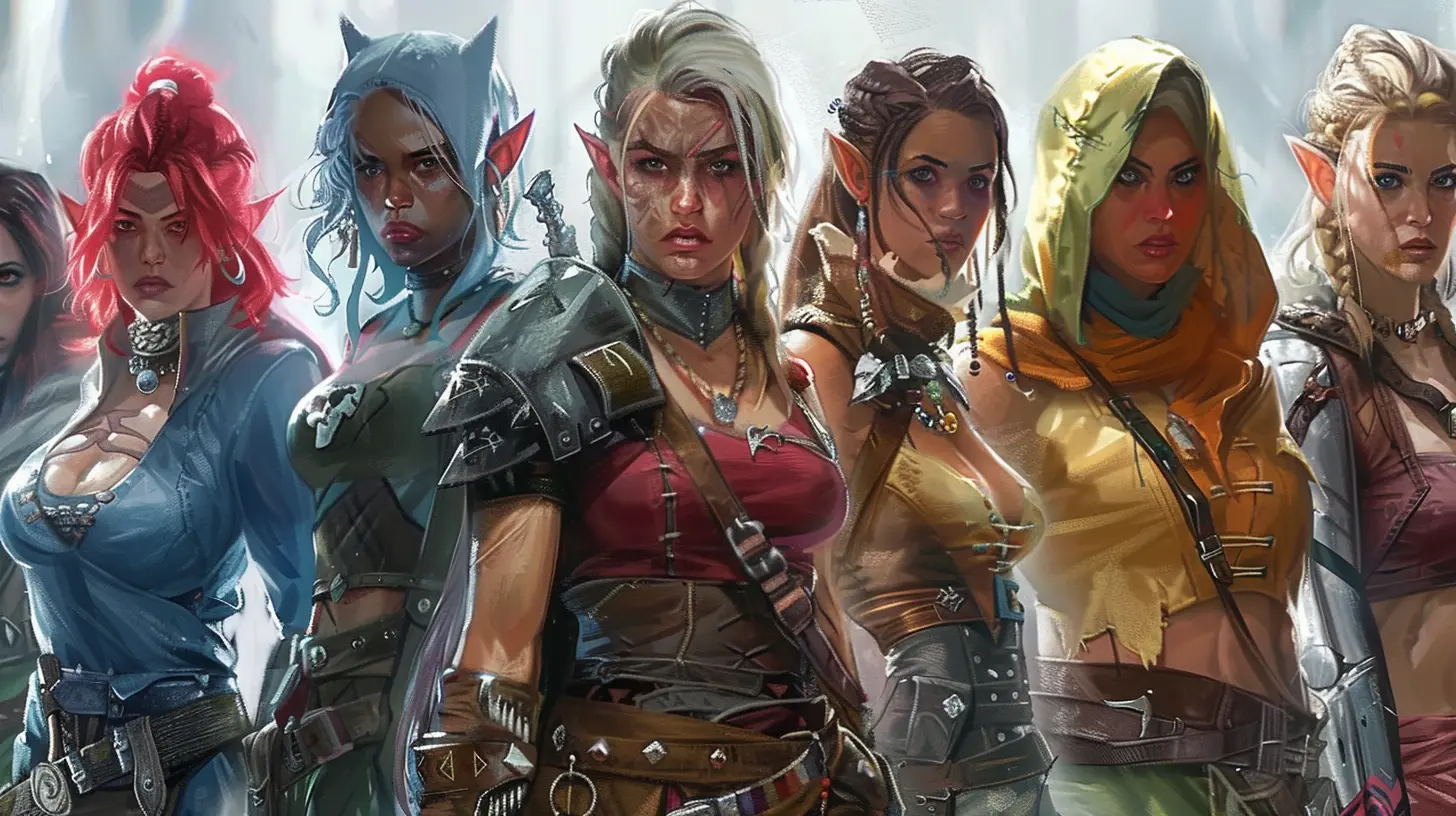
Character Customization: More Than Just Looks
Okay, sure, designing the perfect jawline or selecting just the right scar is insanely fun — who hasn’t spent an hour on that? But real character customization goes deeper than aesthetics.1. Playstyle Freedom
Customization lets you build characters tailored to how you like to play. Want to be a tanky knight who charges headfirst into battle? Go for it. Prefer sneaking in the shadows, picking locks, and sweet-talking your way out of trouble? There’s a build for that too.This freedom turns every player's journey into something unique. It’s like giving you the tools to write your own fantasy novel — and you’re the main character.
2. Emotional Investment
When you spend time crafting a character from scratch, you feel more connected. It’s not just some NPC with a cool backstory; it’s you. And because you care, the triumphs feel sweeter, and the losses sting harder.Ever feel lowkey heartbroken when your custom hero bites the dust in a brutal boss fight? Yeah, us too. That’s the power of attachment.
3. Role-Playing Becomes Real
Character customization adds meaning to the "role-playing" in RPGs. You're not just role-playing a character someone else wrote. You're stepping into a persona you created.Whether you’re answering dialogue choices based on your character’s moral compass or forging alliances based on their backstory, it all adds depth to the gameplay.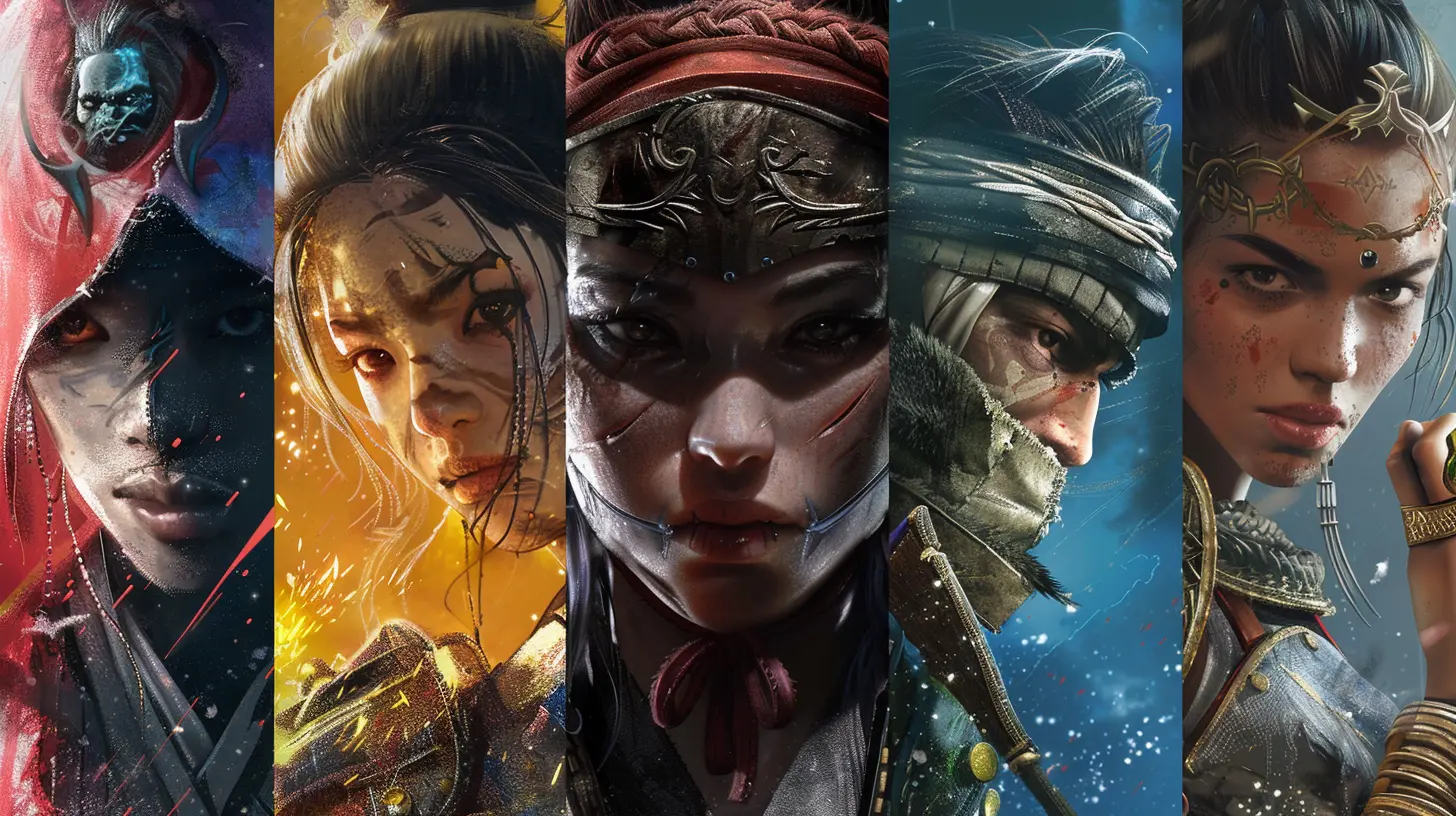
Social Identity & Representation in Games
Let’s talk about something super important: representation.In the past, RPG characters often followed cookie-cutter molds. You were usually a white, male hero with a chiseled jaw and a tragic past. Not much room for diversity. But character customization broke that mold wide open.
Now, players from all walks of life can see themselves represented in games. Skin tones, body types, genders, voices — the best RPGs today let you be whoever you want to be.
Games like Cyberpunk 2077, Dragon Age: Inquisition, and Elden Ring took it up several notches. They understand that inclusion isn’t just a buzzword — it’s essential.
And let’s not forget how the LGBTQ+ community has embraced RPGs as spaces to express identity. Character creation becomes a safe haven where you can explore who you are, or maybe who you dream of being.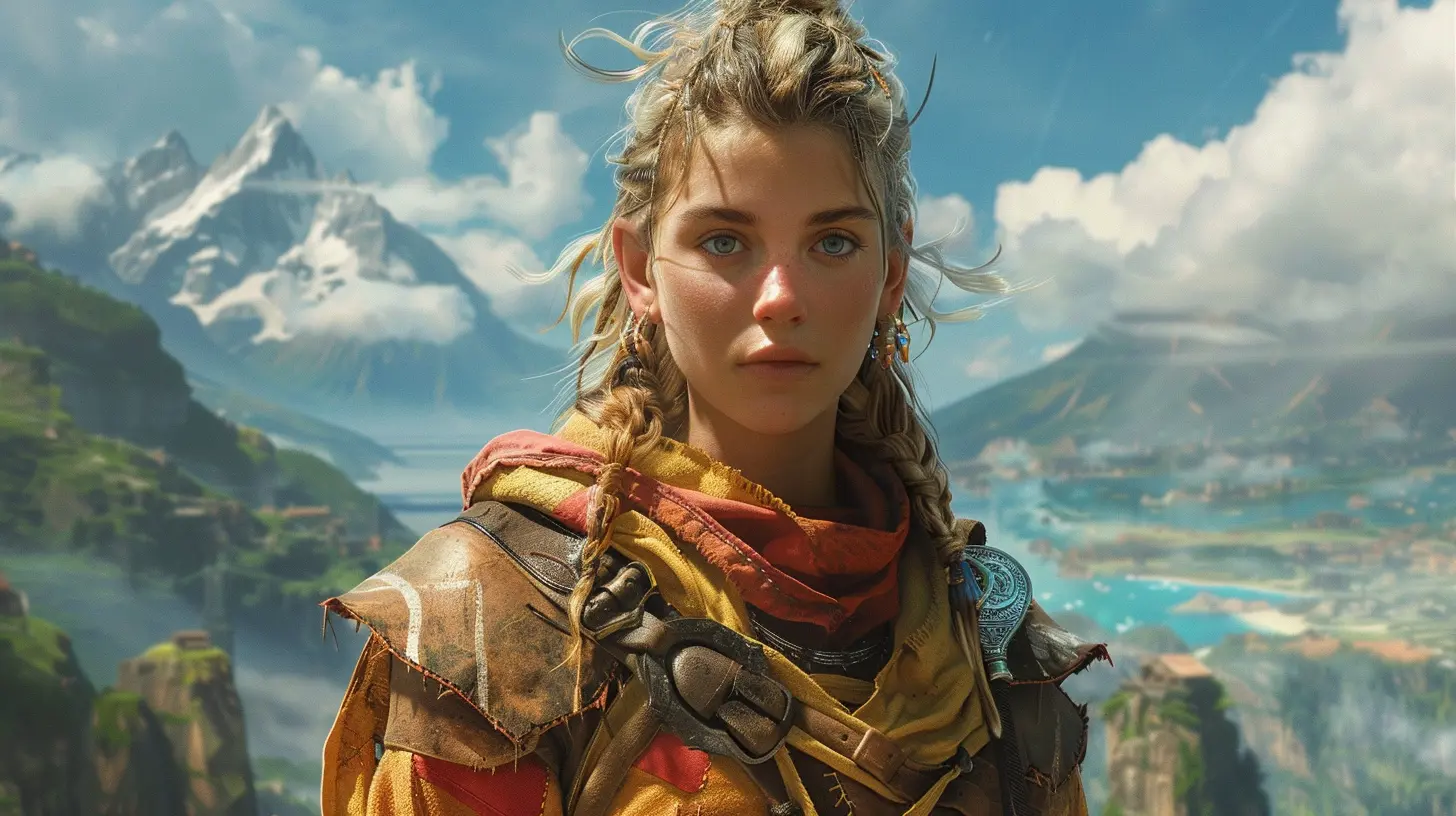
How Customization Affects Narrative
One of the coolest impacts of character customization is how it changes the story experience.Branching Dialogue and Choices
Developers now build branching narratives that respond to your character's personality, choices, and even looks. Whether you're a suave diplomat or a gruff loner, NPCs respond differently. That’s a game-changer, literally.In Mass Effect, for instance, your character’s actions shape intergalactic politics. In The Witcher 3 (while Geralt is a fixed character, mind you), the armor and choices still impact how people react to you.
Dynamic Endings
Customization also leads to personalized endings. Games like Skyrim and Fallout: New Vegas allow players to shape the world through their character’s actions. The ending reflects your journey, not a predetermined path.That adds replayability too. Ever finished an RPG and thought, “Hmm, I wonder what would’ve happened if I’d been a sneaky elf instead”? That's the beauty of player-driven storytelling.
MMO RPGs & Online Worlds: Bring Your Avatar to Life
Let’s not forget the multiplayer side of things. In MMORPGs (like World of Warcraft, Final Fantasy XIV, and The Elder Scrolls Online), character customization is practically a social currency.Your appearance is your avatar in a living, breathing online world. It shows off your personality, your role, sometimes even your guild status. People recognize you not just by your username but by how you look.
And in games like Second Life or VRChat (yes, it's not strictly an RPG, but the idea holds), character customization becomes an art form. It’s a creative outlet as much as it is a gameplay mechanic.
Modding & Community Creativity
Oh boy. We cannot talk about character customization without giving a big shoutout to the modding community.Mods have expanded customization far beyond what developers originally included. If you’ve ever played Skyrim with mods, you know exactly what I’m talking about — high-res textures, new hairstyles, ornate armor sets, and even entirely new races.
The community thrives because people love crafting unique characters. Modding is like handing players a paintbrush and saying, "Go nuts!"
Accessibility Features: Everyone Should Get to Customize
Let’s take a moment to appreciate the strides being made in accessibility. Character creators nowadays often include options like:- Voice pitch sliders
- Pronouns and gender-neutral options
- Wheelchair or prosthetic limb integration
- Visual cues for colorblind players
These tools make sure that everyone, regardless of physical ability or identity, can enjoy the freedom of self-expression.
That’s what gaming should be about — fun, inclusion, and creativity.
Games That Set the Bar for Character Customization
Let’s highlight a few RPGs that absolutely nailed the customization game:🎮 The Sims Series
Okay, not a traditional RPG, but man, the customization goes deep. You can tweak everything from freckles to foot size. Personality traits, aspirations, quirks — this series is a customization playground.🎮 Skyrim
Need we say more? The Elder Scrolls V: Skyrim lets you build literally anyone. Orc barbarian? Done. Stealthy Argonian assassin? You got it. With mods, the possibilities are endless.🎮 Cyberpunk 2077
Despite its rocky launch, Cyberpunk 2077 brought some of the most detailed, inclusive customization options to the table — including full gender fluidity and deep backstories.🎮 Dragon Age: Inquisition
Customization here isn’t just about appearance. Dialogue choices, romance options, and even your character's race influence the story in meaningful ways.🎮 Elden Ring
It surprised a lot of people how deep the customization went in a FromSoftware game. Given how punishing the game is, at least you get to look cool while dying hundreds of times.Where It's All Heading: The Future of Customization
As tech evolves, character customization is only going to get more immersive:- AI-driven avatars that adapt to your voice and movements
- Scanning your face to create hyper-realistic player models
- More nuanced emotional expressions and body language
We’re heading into exciting territory. Soon, we might be able to create characters that not only look like us but feel like us — with dynamic emotions, memories of past actions, and evolving personalities.
A bit creepy? Maybe. Super cool? Absolutely!
Final Thoughts: Why It Matters
Character customization isn’t just a side feature anymore — it’s the heart of modern RPGs. It empowers players to tell their stories, be their heroes, and shape worlds around their choices. It brings us closer to our characters and makes games feel like more than just games.So the next time you spend an hour perfecting your character’s cheekbones, remember — you're participating in a revolutionary design shift that’s transformed how we play, feel, and connect with games.
And it’s only going to get better.
all images in this post were generated using AI tools
Category:
Video Game CharactersAuthor:

Lana Johnson
Discussion
rate this article
1 comments
Mackenzie McCool
Character customization revolutionized RPGs, deepening player investment and personal storytelling opportunities.
November 23, 2025 at 5:51 AM

Lana Johnson
Absolutely! Character customization has transformed RPGs by fostering deeper player engagement and allowing for more personalized narratives, making each player's experience unique.
